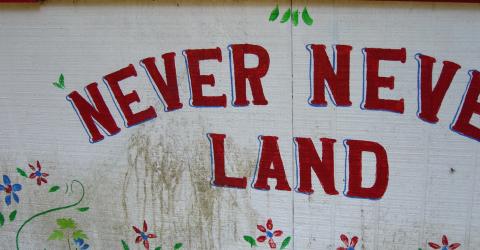2014 SLAMDANCE FILM FESTIVAL NARRATIVE SHORT FILMS SELECTION!
Unrated
3 minutes
**
You know those multi-media art installations that that require complex mission statements to understand? “Moving” is one of those. Director Marc Horowitz and friend took advantage of an art gallery remodel by donning abstract pink costumes (one looks like a roll of pink shag carpet and the other, a pile of insulation) and slowly chipping away at a marble-ish monolith inside a white room.
Their conversation (which is actually just subtitles of pitched-up gibberish) vaguely resembles the small talk one might make during a laborious move, but it could also be a way to pass the time during any physically taxing but monotonous job. That dialog is the most interesting thing about the piece. The conversation goes from vaguely philosophical (“Acceptance is the only way out of hell”) to light-heartedly hypothetical (“Would you rather stand in line all day, every day, for the rest of your life or have to exclusively eat frozen molasses?”) with some goofing off in between (“Do I look like I’m modeling for a J. Crew catalog?”).
As it stands, “Moving” feels a bit on the pretentious side. It’s the kind of art that the auteur doesn’t want you to get right away. How else can you interpret Horowitz’ synopsis of the film which he describes as “a series of peripheral conversations between two workers on the job raises more questions than answers.” Horowitz doesn’t want you to get it. He wants you to have questions, but he doesn’t want to answer them. He leaves it up to other to explain his intent. Marisa Olsen wrote a lengthy “meditation” about “Moving” and the only thing clear about it is that she thinks Horowitz is a genius.
“Like a good con man, he draws his interlocutors (in that case, that would be you: the viewer) closer and closer, eager to hear more, and serving-up projects that cut to the heart of the interpersonal issues with which so many of us identify in an increasingly alienating, media-saturated, power-hungry art world.”
It takes Olsen over 1100 words to elaborate on those common interpersonal issues. Then again, she does specify that they are issues felt within the “power-hungry art world.” I think it’s pretty safe to say that I am nowhere near that demographic. But if Olsen’s quote makes perfect sense to you, then you’re going to love “Moving.”
Originally published on FilmThreat.com (now defunct).
